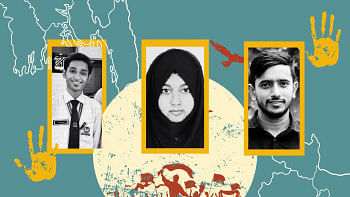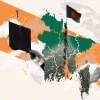The dangers of commodifying higher education

At a recent seminar, Professor Samina Luthfa made an insightful point about building research-oriented universities in Bangladesh, remarking that "research is not just about technical skills; it requires insight and questions." This statement reflects a deep understanding of the essence of academic research, and I wholeheartedly agree with her. Insight is not something that can be gained merely through technical proficiency or the mastery of research methods. It emerges from critical engagement with existing knowledge, intensive reading, thorough literature reviews, careful observation, and rigorous analysis. To foster such insight, the ability to think critically and creatively is indispensable.
Since the 1990s, successive governments in Bangladesh have adopted neoliberal policies in higher education, driven by a centralised, bureaucratic approach. This shift has prioritised short-term economic gains and corporate interests, often at the expense of intellectual and democratic values. The adoption of these policies, through top-down, technocratic decision-making, has excluded democratic participation from key stakeholders such as students, teachers, and local communities. We must remember that higher education is not simply an instrument for economic development but also a space for critical citizenship, intellectual growth, and social transformation. Without critical evaluation, neoliberal reforms could have serious implications for the long-term intellectual and social health of Bangladesh.
A significant aspect of this shift is the gradual corporatisation of universities, particularly private universities. While Bangladeshi universities are not fully market-driven, they are increasingly treated as profit-generating entities where VCs act like CEOs, teachers as managers, and students as customers. This commodification reduces education to a transactional process, where degrees are products for sale. But should higher education cater only to corporate needs, or should it develop critical thinkers and socially responsible citizens? The answer lies in re-evaluating our educational purpose.
Public universities, while not fully neoliberal, are adopting these practices, though not as quickly as private institutions, which more visibly display corporate symptoms. The corporatisation of private universities makes them increasingly market-oriented, while public universities are slowly following suit. The emphasis on bureaucratic initiatives like the Institutional Quality Assurance Cell (IQAC) pushes universities to focus more on quantifiable outputs rather than cultivating the creativity and critical thinking necessary for intellectual and societal progress. We must question whether these measures truly capture the essence of education.
Furthermore, we need to support disciplines that may not align directly with market demands but are essential for broader intellectual and moral development. Are we offering adequate resources for fundamental subjects like philosophy, physics, mathematics, anthropology, and history? What about fundamental research in these fields? These fields are vital for ethical reasoning and scientific innovation, yet they are often sidelined in favour of commercially viable programmes like computer science and business administration. Can a nation truly progress if it focuses only on technical skills, while neglecting the ethical, cultural, and intellectual development that comes from other disciplines?
Instead of simply expanding the number of universities, we should concentrate on creating high-quality institutions as the indiscriminate growth of universities might dilute educational standards. A sustainable approach involves investing in a select number of universities that excel in different fields and promote research, teaching, and public engagement. Quality, not solely quantity, should be the goal.
Additionally, the decolonisation of education must be handled with nuance. Decolonisation does not mean rejecting knowledge, technologies, or innovations from the West but rather engaging critically with global knowledge systems and integrating them into our local contexts. In a country as diverse as Bangladesh, the relevance of university education depends on its ability to address local needs while remaining open to global influences. Universities should be sites where global knowledge is adapted to fit local realities rather than simply replicating foreign educational models.
Walter Feinberg's concept of "Educational Democracy" offers a valuable framework for rethinking higher education in Bangladesh. Feinberg argues that education should not solely serve corporate or economic interests but should foster democratic values, critical thinking, and public engagement. Higher education, under this model, becomes a space where students and educators collaborate to address pressing social, political, and intellectual issues. Educational Democracy emphasises that universities should cultivate responsible, engaged citizens, not just skilled workers for the corporate world.
Public universities, though slower to adopt neoliberal practices, are not immune to these pressures. Feinberg's model provides a roadmap for transformation. In Bangladesh, this shift means reimagining universities as spaces for public engagement, critical inquiry, and intellectual freedom. Without such a shift, we risk perpetuating a system that serves only a privileged few while marginalising the majority.
SV Anwar Ahmed is a student of anthropology and an independent researcher.
Views expressed in this article are the author's own.
Follow The Daily Star Opinion on Facebook for the latest opinions, commentaries and analyses by experts and professionals. To contribute your article or letter to The Daily Star Opinion, see our guidelines for submission.

 For all latest news, follow The Daily Star's Google News channel.
For all latest news, follow The Daily Star's Google News channel. 










Comments